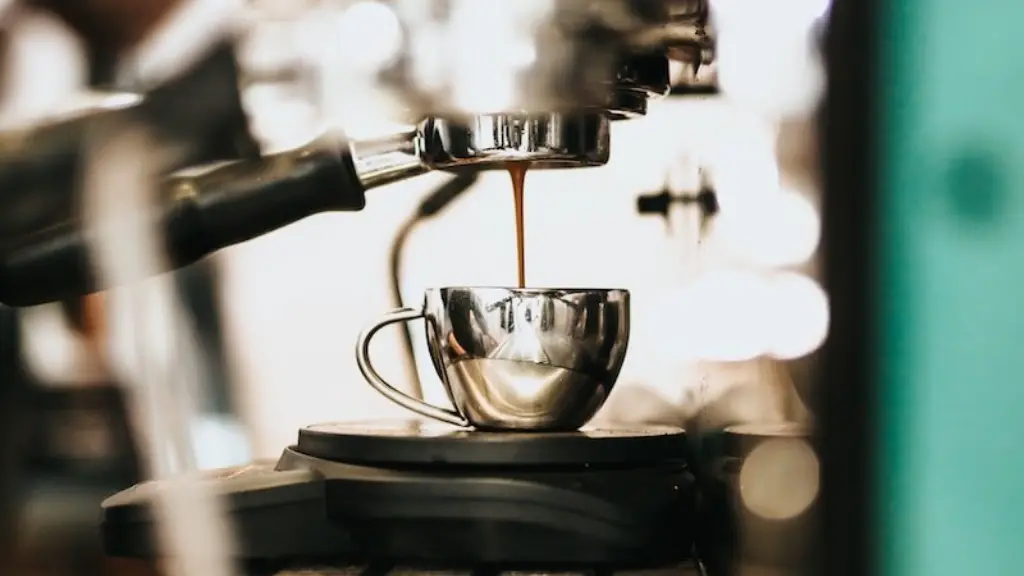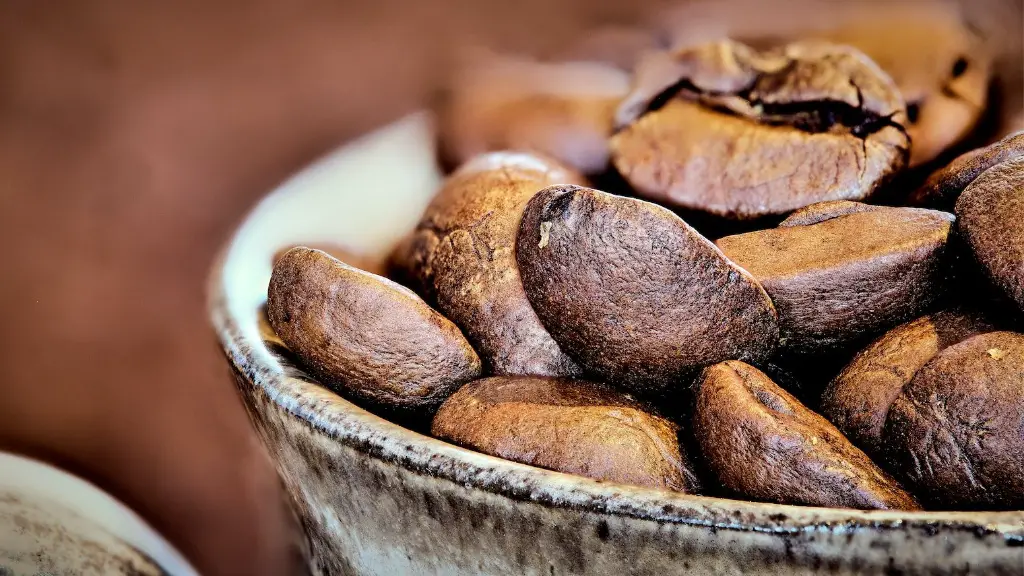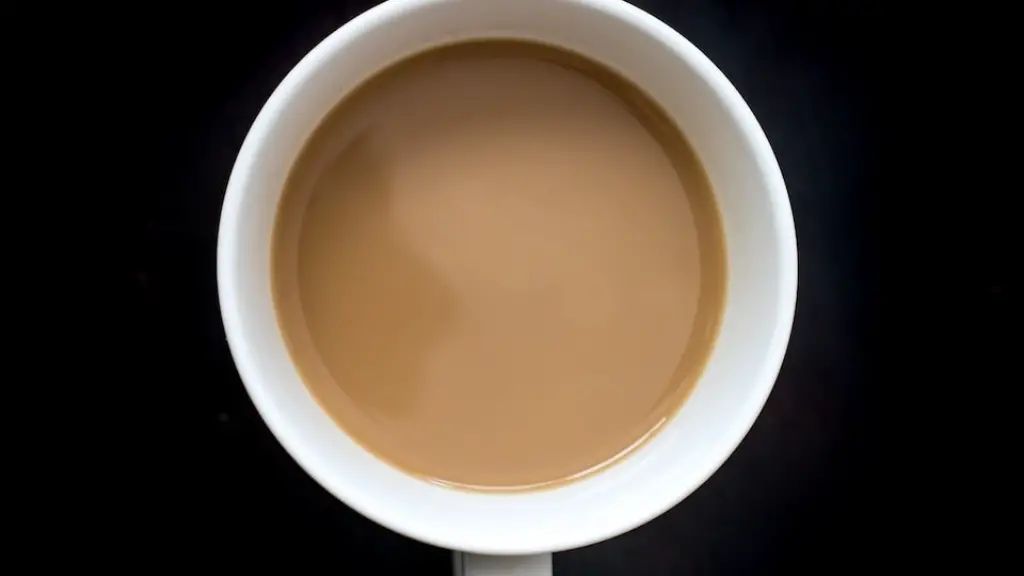Main Topic: Can drinking coffee cause heart palpitations?
Coffee is one of the world’s most popular drinks and its consumption is increasing with each passing day. But can drinking coffee really cause heart palpitations? That’s the focus of this article: exploring the relationship between drinking coffee and heart palpitations.
Generally speaking, palpitations are episodes of rapid, powerful or irregular heart beats. During such periods, one might feel as if their heart is pounding, racing or skipping a beat. In most cases, palpitations are a result of anxiety or stress, and are not a sign of a serious health condition. However, it is possible that brewing and drinking coffee can trigger them too.
Research into this topic takes differing perspectives. According to a study by British researchers, there is a direct link between drinking coffee and experiencing heart palpitations. According to the authors of the study, drinking two cups of coffee daily can lead to an increased risk of developing irregular heart rhythms.
However, a 2019 French study debunked these claims. After analyzing the heart rhythm of 43 young adults across a six-day period, the French study concluded that drinking coffee has no real effect on the likelihood of getting heart palpitations.
The American Heart Association (AHA) has made a clear stance on the issue: drinkers of two to three cups of coffee daily may experience palpitations more often than those who consume less. Furthermore, the AHA recommends moderation when it comes to consuming caffeine and understand the potentially serious side-effects.
Finally, it is important to be aware of the fact that caffeine is a stimulant. Many people feel excited, alert and focused after consuming it. It can also increase palpitation levels; some might feel as if their heart is beating extra fast or their pulse is racing.
Coffee and Its Effects on the Body
Coffee has stimulant properties and it can speed up the nervous system and the heart. It works by blocking the chemical that tells your brain that it is time to slow down and rest. As a result, the heart pumps faster and harder, causing palpitation episodes.
Caffeine also affects cardiovascular functions and increases the levels of adrenaline in the body, which can lead to either an increased or decreased heart rate and palpitations. Studies have also identified an increased risk of stroke and heart attack among coffee drinkers.
A recent study by the Virginia Commonwealth University School of Medicine discovered that, in combination with certain genetic traits, drinking coffee leads to a rapid and persistent cardiac response. When coffee was given to volunteers possessing certain gene variants, their heart rate increased by 25 to 30 beats per minute.
In addition, coffee also constricts the blood vessels, leading to a higher blood pressure. Caffeine also boosts blood glucose and epinephrine levels, increasing the production of stress hormones such as cortisol and adrenaline. These stress hormones can then lead to feeling of anxiety and panic, as well as palpitations.
Different Types of Coffees and Their Impact
The type of coffee consumed can also be a factor in the experience of palpitations. For instance, milk-based coffees such as lattes, cappuccinos, and macchiatos contain caffeine, but are also high in milk proteins and fats. These milk proteins and fats can cause heart palpitations, as they contain a range of chemicals, vitamins, minerals, and other substances.
Similarly, energy drinks, particularly those that contain added caffeine, are also known to contribute to heart palpitations. These drinks usually contain high quantities of caffeine, sugar, and other stimulant ingredients such as ginseng, guarana and taurine. Such drinks are often consumed late at night and can lead to palpitations due to the high caffeine content.
Coffee substitutes such as chicory, barley and dandelion root can also cause palpitations, as they can contain over half the amount of caffeine found in coffee. Decaffeinated coffee can also cause palpitations, as the process of decaffeination does not completely remove all the caffeine it contains.
Lifestyle Choices and Palpitations
Besides coffee, one’s lifestyle choices can also have a profound effect on their health. Not getting enough sleep, not eating a balanced diet, engaging in regular physical activity and excessive smoking, drinking and drug use can all contribute to palpitations.
Other factors that could potentially increase the risk of palpitations include genetics, an underlying medical condition, or a reaction to a certain food, drink or medication. Additionally, hormones can also have an effect as increases in estrogen and progesterone can cause an increased heart rate and palpitations.
Treating Palpitations
Palpitations can be a symptom of a more serious issue, so it’s important to speak to your doctor if you’re concerned about them. Your doctor might suggest treatment options such as medications, lifestyle modifications, or for some more serious cases, even surgery.
In some cases, palpitations may be treated with supplements containing magnesium, omega-3 fatty acids, or natural herbs such as valerian root and passionflower. It is important to remember that these supplements should never be taken as a substitute for medical care and should only be used as directed by a qualified healthcare provider.
When to Cut Down on Caffeine
If you experience palpitations regularly and suspect it is due to your caffeine intake, it might be a good idea to reduce your daily caffeine intake. It’s also important to make sure you’re drinking plenty of water as it can help reduce the risk of developing heart palpitations.
It’s also important to note that it is not just coffee that contains caffeine; it is also found in teas, chocolate, energy drinks and some sodas. If you have been drinking caffeine in excess, it’s best to cut back gradually and drink plenty of fluids to help flush out caffeine from your system.
Other Ways to Avoid Palpitations
In addition to cutting down on caffeine, there are other ways to minimize the risk of palpitations. Manage stress levels by taking part in calming activities such as yoga, meditation and deep breathing exercises. Regular physical activity can also help reduce the chances of developing palpitations. Finally, it’s important to get enough sleep; lack of sleep can increase the risk of palpitations.
Consumption in Moderation
At the end of the day, moderation is key when it comes to coffee consumption. When enjoyed in moderation, coffee can provide several health benefits and be an enjoyable part of your daily routine. As always, it’s best to consult with your doctor if you are concerned about any potential health risks.
Changes in Habits and Patterns
If you suspect your coffee drinking habits are causing palpitations, it’s wise to take several steps to establish healthier habits. If you are a regular coffee drinker and develop palpitations, it’s important to consider the possibility that coffee is to blame. Try cutting down on your daily caffeine intake or switching to decaffeinated coffee. There are also a variety of alternatives to coffee that do not contain caffeine, such as caffeine-free herbal tea.
For those who drink coffee very frequently, it may help to set a limit as to how many cups you can drink per day. If you are prone to palpitations and experience them frequently, it might be helpful to keep a log and document any potential triggers. Additionally, try to avoid any other stimulants such as energy drinks or sports drinks, as they can exacerbate the risk of palpitations.
Professional Healthcare Advice
Although it is possible that coffee can cause heart palpitations, speaking to a healthcare professional is still recommended. If you think it is coffee contributing to your palpitations, see a specialist to rule out any underlying medical conditions or to see if any medication might be necessary.
Furthermore, if you are trying to cut down on your coffee consumption, you should speak with your doctor first. He or she can provide advice and support to help you adjust and adapt to life without coffee. Finally, if you are worried about palpitations, be sure to monitor yourself and keep a record of your symptoms.





